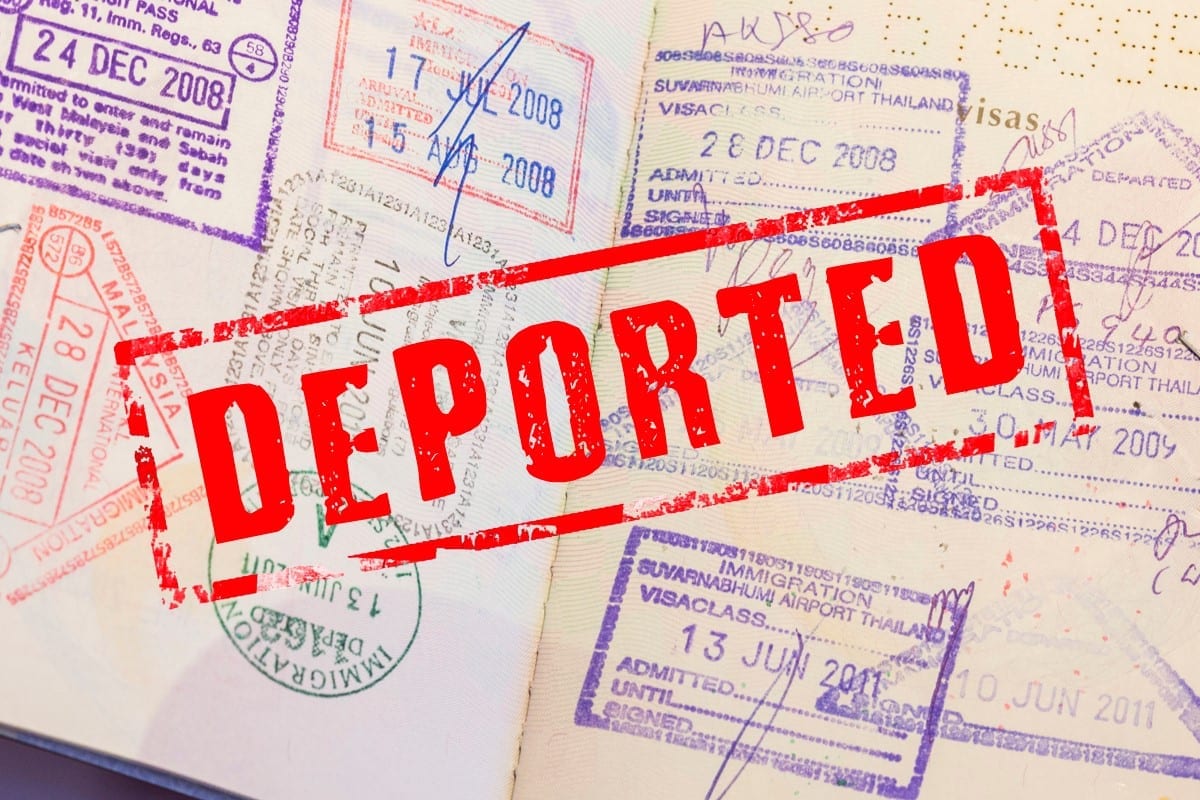Drug Convictions Can Get You Deported
Over 300 arrests were made earlier this month after the U.S. Immigration and Customs Enforcement’s (ICE) Enforcement and Removal Operations concluded a month-long investigation in the Midwest of convicted illegal aliens. Offenders have been arrested in Missouri, Wisconsin, Kentucky, Kansas, and Indiana, but the state of Illinois holds more offenders than any other state involved.
In our state alone, 107 people were arrested for violent and drug-related crimes. 47 of the offenders resided in the Chicago area. The offenders include citizens of 10 different countries, including Mexico, Poland, Senegal, and New Guinea.
Many of the offenders had previously been issued orders of deportation or violated previous deportation orders and illegally came back into the United States. They will be immediately removed from the country. The rest await a hearing before an ICE judge or will be removed from the country shortly.
When Can You Be Deported?
Unless you are an American citizen, committing a crime or violating the terms of your stay can qualify you for deportation. You are at risk even if you hold the status of a permanent resident, green card holder, or visa holder. If you are in the United States on a tourist visa, you can get deported for having a job. If you are in the United States on a student visa, you can get deported for not attending school full-time.
Additionally, if you are a non-citizen and commit any of the following crimes, you qualify for deportation:
- Aggravated felonies
- Domestic violence
- Crimes of moral turpitude
- Failure to advise the United States Citizenship and Immigration Services (USCIS) of a change in address (within 10 days)
- Marriage fraud
- Smuggling aliens into the country
- Document fraud
- False claim of citizenship
- Any drug-related violation (except possession of <30 grams of marijuana)
That’s right. Any drug-related violation other than having a small amount of marijuana can get you deported. And if you possess a small amount of marijuana with the intent to sell, that does qualify you for deportation. Oh, and one final thing: if you are found to be a drug abuser or addict, this is also grounds for deportation.
What Will Happen If I Qualify for Deportation?

If you have yet to enter the United States, you will be denied entry – also referred to as “expedited removal.” If you have a fear of persecution or danger back in your home country, you may be able to petition your claim to immigration officials and receive asylum. If you are an illegal alien, it may be best for you to voluntarily leave the country to avoid any legal issues or additions to your record.
If you believe you should remain in the United States, however, you do have the right to an attorney and to be heard in court. USCIS will have their own lawyer, and both attorneys may question you or a witness in front of a judge in order to prove to the judge that you should be allowed in the country or deported.
If a judge decides that an order of deportation is necessary, you can still fight by applying for an appeal. Once the time limit for an appeal is up, however, your order of removal will be finalized and you will be forced to leave the United States.
What If I Have Been Here a Long Time?
If you have a green card and have been convicted of a drug crime, there is a possibility that you can cancel your removal from the country. However, you must meet certain criteria. If you have been a resident of the United States for over seven years before you committed the crime, you can qualify for cancellation of removal. Immigration law is very strict about these timelines.
If you were convicted of an aggravated felony, which includes drug trafficking or sale, you cannot qualify for cancellation of removal.
Waiver of Inadmissibility

Not all hope is lost if you end up being deported, though. There is a way to have past crimes forgiven and permission to enter the country reinstated. You may apply for a waiver of inadmissibility. If granted, this waiver will forgive your crime and allow you back into the United States.
Unfortunately, drug crimes are usually viewed by immigration as unforgivable. There is only one exception. If you were convicted of possessing <30 grams of marijuana without intention to distribute, your crime can be waived and you may be let back into the United States.
As you can see, there are exceptions when it comes to deportation and immigration laws, but they’re not always obvious, and petitioning to stay in the United States is not always easy. To navigate the complicated world of immigration law and deportation procedures as they relate to drug crimes, contact an experienced Illinois drug crimes lawyer today.
About the Author:
Andrew M. Weisberg is a former felony prosecutor who now serves as a defense attorney in the greater Chicago area. He has extensive experience in handling all types of criminal cases, from sex offenses and domestic violence to retail theft-related crimes, Murder, and drug crimes.







 Blog Home
Blog Home 










